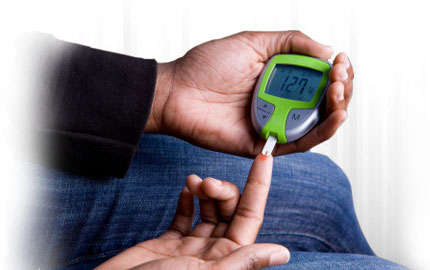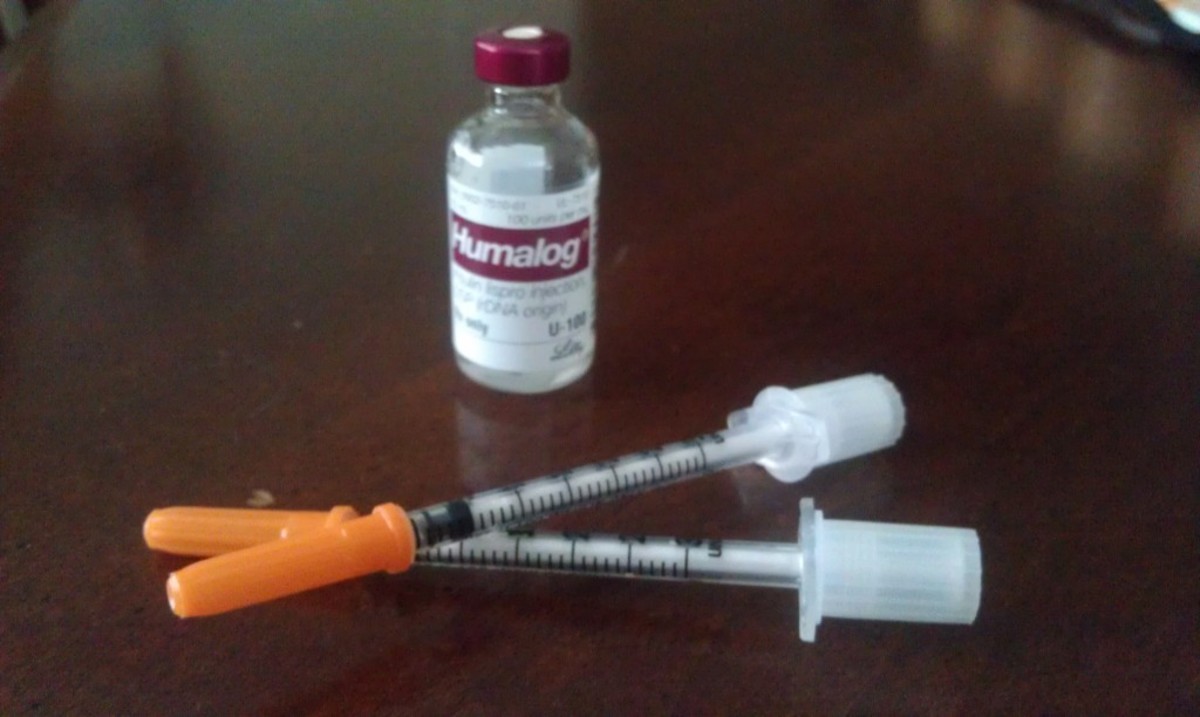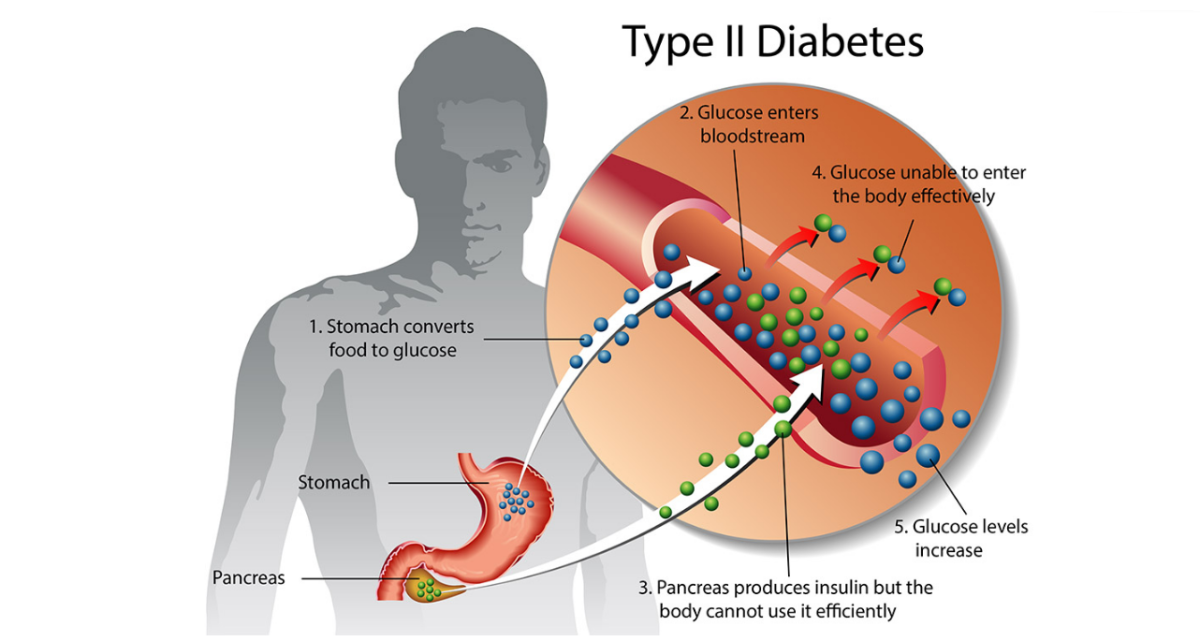Diabetes: Sexual and Mental Health Related Issues


Looking Deeper
Over 20 million Americans live with diabetes. I am one of those millions. I was diagnosed with type 1 diabetes at 18 years old, 4 months after giving birth to my first son. In October I will have lived with diabetes for 7 years, and I still haven’t even scratched the surface of obtaining the information and knowledge about this awful disease. Many people know that this is a “head to toe” disease, affecting your vision to the nerves in your feet. It’s overwhelming to say the least.
But what I wasn’t aware of, is the mental effects that are linked to diabetes such as depression and anxiety. And that diabetes also takes a huge toll on your sex life. I was of course very depressed when I found out I had diabetes. I am sure most people that go through such a long time without it, all of a sudden getting it, go through some sort of sadness at the beginning. But I was completely unaware of the long-term effects. In recent studies and tests, the latest findings are that people with diabetes are far more likely to suffer from psychiatric problems. WOW! Not only do I need to make sure that my eyesight is alright, but now I also need to start paying attention to what’s going on up inside my skull as well as the millions of other complications associated with this disease. Oh and not to forget that I am aware of what types of effects it could be having on my love life.
There is much testing still being done. Exactly pinpointing why diabetics are prone to mental illness is still unclear. All that’s been done thus far is finding that diabetics have more mental or mood disorders than those who don’t. There are many theories out there such as: Having related conditions like chronic pain-in addition to the normal complications with diabetes- is depressing, adding up to a greater amount of propensity of developing a mood disorder. Or, other studies have suggested that some medications used to treat psychiatric conditions like anxiety can actually trigger type 2 diabetes.
Depression and mental distress can make blood sugar control more difficult. Although studies have been mixed, there is little known about different aspects of living with diabetes. There are many varying factors such as type of insulin regimen uses, glucose monitoring schedule, and frequency of serious hypoglycemia, which affect mental health of people with type 1 diabetes. Many studies are also suggesting that psychiatrists and psychologists should start being a routine part of diabetes care.
Other studies suggest that diabetes diagnosis can lead to fear, anger, depression, and denial. Ranging from mild feelings of irritation through to serious depression. Diabetes and mental health are serious issues that need to be better considered along with a range of solutions. Many mental health problems, like those caused because of diabetes are often ignored or very underestimated. There is limited information on this subject, but the more I find, the more I will continue to post. It’s not something that should be ignored.
Relationships with families, friends and professionals:
People with diabetes often respond emotionally to their hormone levels, and may experience strong mood swings. A person with diabetes may suddenly express long-withheld emotions, at times feverishly. Sometimes, diabetics may be unaware of severe mood swings; and then act as if their current emotions/feelings will not affect long-term decisions. Furthermore, emotional outbursts may follow minor events. Often, low blood sugar results in a temporary personality change of belligerence or extreme irritability.
A person with diabetes may criticize or announce an unusual decision to family members, friends or colleagues ... and then quickly forget these conversations. Family members, friends and business associates affected by such hasty decisions may respond with their own emotions. Eventually, they stop trusting the diabetic person or begin monitoring the diabetic person more closely than is healthy for either the diabetic or family member/friend/associate. As they happen, emotional conflicts can spiral to create relationship turmoil.
Depression
There have been several studies that suggest people with diabetes are more likely to suffer from depression. Depression is an illness affecting both your mind and your body. When in a depressed state, you may feel sad, lethargic, apathetic toward your self-care, or downright uninterested in everything. Obviously, you can see that it is very difficult to manage your diabetes and stay healthy when you’re depressed.
Depression is often a response to an unhealthy environment or relationship. Guilt often underlies depression. If a person feels guilty for having hurt people, (i.e. feeling like a burden to family/friends due to diabetes and its symptoms), then life may not make sense, which leads to depression. At times, depression results from stress, which influences healthy management of diabetes. Daily injections, mood swings and fears of complications may also become a source of depression, frustration, anxiety and apathy. Often, diabetics have difficulty managing stressful emotions, such as guilt, anger, fear, sadness, and thoughts about cause, seriousness, and treatment effectiveness.
Guilt
Guilt is often a conflict about having hurt other people; i.e. having a low blood sugar outburst towards family, friends or colleagues. I have lashed out at my poor husband more times than I can count. Especially when my sugars are low. Guilt is something I feel all the time. I've tried more times than I can count to try to control it. But I can't and that becomes extremely frustrating.
Anxiety
Anxiety is often a reaction to possible future events; i.e. fear about complications one may face from diabetes at an older age.
When I got diagnosed I immediately started thinking about my weight, diet, and sugar levels. What could potentially happen with my sex life wasn’t even close to on the list up until very recently. What’s going on with blood sugar levels can have a huge impact on how you feel in bed, and yeah you guessed it- not in a good way. As a diabetic, we have multiple obstacles for achieving a satisfying sex life like that of those who don’t have it. The biggest finding thus far is decreased libido. And of course it can affect men and women very differently. It can cause erectile dysfunction for men and reduce hormones in women.
Sometimes it’s embarrassing to talk with a doctor about your sex life. Honestly, most doctors feel uncomfortable discussing it as well. Hence, all the talk about kidney and nerve damage rather than your sex life. But sex is a significant, or can be, part of one’s health. Mental and physical alike. Maybe that’s why there is so much unknown, people are just afraid to talk about it and would much rather try to self-diagnose their issues on their own.
With most everything else, the more knowledge we have and understanding how to deal with symptoms that may put a wedge between you and your lover, your sex life can be boosted again. I wanted to share this link that goes into a little more depth on the topic.
http://www.prevention.com/health/diabetes/type-2-diabetes-and-sexual-problems#ixzz2WTucddu1
There is a boat load of information out there about diabetes with mental and sexual effects. Sometimes it’s just hard to figure out where to look. It’s general knowledge that diabetes effects so much. Mostly focused on the physical effects that we can see. It’s time to start looking at why maybe you’ve been so moody lately. Diabetes can control EVERY factor of one’s life unless properly controlled, and even then it’s extremely difficult and time consuming.








